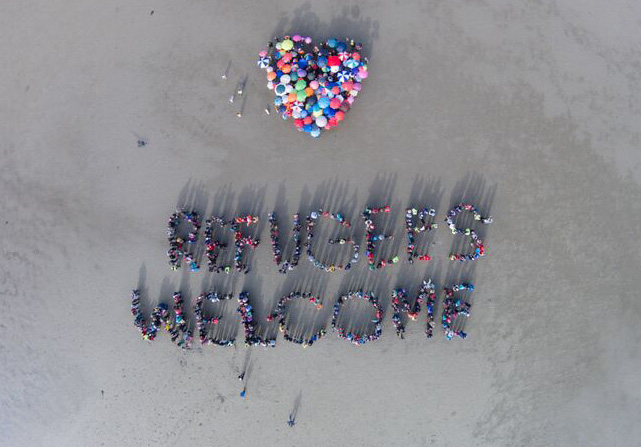The sudden nature of the recent US withdrawal from Afghanistan and the accompanying success of the Taliban have left many Afghans, who fear the oppressive religious conservatism and violent brutality of the incoming regime, scrambling to find a route out of the country. The lives of countless Afghans now depend on their access to asylum abroad. As a country that has benefitted hugely from access to safe havens abroad in the past, and from freedom of movement today, one might expect Ireland to open its doors to those fleeing war. Yet, the Irish government has so far committed only to accept 600-700 Afghan refugees — a paltry figure. Given our fortunate position as one of the richest countries in the world, Ireland has a moral duty to accept many more refugees than this and to provide a reasonable standard of living.
In recent weeks, people across the globe have been rightly shocked and appalled at scenes from Afghanistan depicting innocent Afghans hiding in their homes from Taliban patrols, rushing to any route out of the country and begging Western forces not to abandon them. Widely-spread videos of terrified Afghans clambering onto the outside of departing aircraft despite near non-existent odds of surviving the journey point indeed to a level of desperation unimaginable to those of us privileged enough to live in peace. Naturally, there has been an outpouring of sympathy for these suffering innocents and biting condemnation of Western policy in Afghanistan can now be heard by the minute. But sympathy without action means little, and tears alone will do nothing to save those now trapped between closed-off borders and vengeful Taliban militants. The notion that the Irish state would welcome only hundreds of such refugees is an insult to the decency of the Irish people. How can a country whose national identity is so defined by emigration and whose history is so scarred by conflict accept such a low number when so many are in need of help?
“How can a country whose national identity is so defined by emigration and whose history is so scarred by conflict accept such a low number when so many are in need of help?”
While it should be enough to say that we ought to welcome those fleeing conflict abroad out of decency and a sense of morality alone, it must also be kept in mind that Ireland has played a role in this crisis by facilitating the transport of American aircraft and troops through Shannon airport. Indeed, successive Irish governments have found no contradiction between the professed neutrality of the state and the provision of an Irish airport to aid the US in waging war in Afghanistan. As a result of this, Ireland bears a degree of responsibility for lives lost in the conflict. It does therefore not seem unreasonable to suggest that beyond our basic moral duty to accept refugees, Ireland also owes refuge to those whose suffering we have helped to facilitate. Through our membership of the European Union and role in EU initiatives (such as EUPOL Afghanistan), Ireland has also had a limited state-building presence in Afghanistan. While the peaceful life in Afghanistan such initiatives once promised can no longer become reality, it is still within the power of the Irish state to try to give Afghan refugees a peaceful life in Ireland.
Given the fast-deteriorating situation in Afghanistan and the increased risk of life to those fleeing through Kabul airport and the Pakistani border, it is imperative that governments around the world, including Ireland, focus now on providing refuge to as large a number of Afghans as can be organised under present conditions (the Irish Refugee Council has argued that a minimum of 1000 refugees be initially accepted). The provision of asylum alone cannot be regarded as an end in itself. It is doubtful that those resettled abroad will be able to return to an Afghanistan governed by the Taliban. In light of this, governments ought to enable them to live reasonable lives abroad by cancelling deportation orders, fast-tracking family reunification, giving them access to all educational and state facilities and providing a clear route to citizenship.
“Ireland has played a role in this crisis by facilitating the transport of American aircraft and troops through Shannon airport.”
While the Irish government has already made some progress in provisionally cancelling deportation orders for Afghans and not forcing them to enter Direct Provision, such measures must be made permanent given the lack of certainty regarding any future return home. The third-level sector also has an important role to play here and those of us studying in Irish institutions ought to push for easier access to university and further education for all refugees, who currently must be resident for three years before becoming eligible for free admission.
We in Ireland often pride ourselves on being an especially welcoming country, on greeting all guests with a céad mile fáilte. Ireland has too often underperformed when it comes to taking our fair share of those fleeing conflict or persecution. One need only look at the hardship faced by asylum seekers in our Direct Provision centres for proof of this. As a country that has experienced persecution and conflict in its own history and is now a wealthy, developed democracy, Ireland is well-placed to provide a new home for many of those fleeing Afghanistan and elsewhere. To fail to do so would be an irreparable shame.






